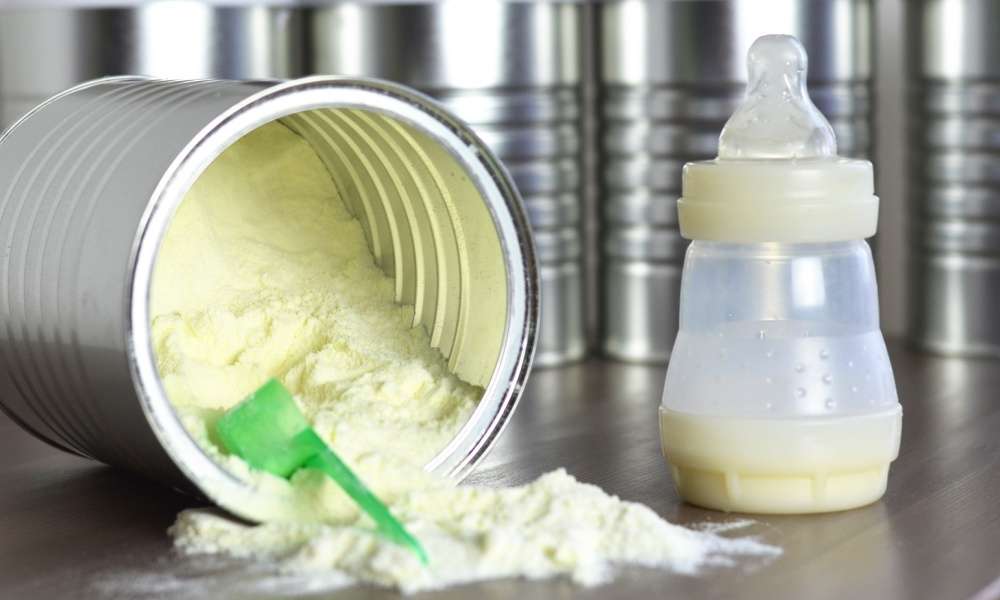Women's Health
Pros and Cons of feeding powdered milk to kids
Pros and Cons of feeding powdered milk to your kids
After going through labor and delivery, the next step for new mothers is adjusting to the breastfeeding. With respect to traditional and cultural values, most of them do not step away from breastfeeding unless they required by a medical condition. But with changing times and preferences of people, devotion to the career/work and determination to get back to the pre-pregnancy figure, mothers are mostly adopting powdered milk as a substitute to breastfeeding. Some infants can also have certain medical conditions which makes it necessary to record how much milk are they drinking and powdered milk helps keep exact measurement. Moreover, powdered milk fed baby can have intimate relations with other members of the family as well, especially if the mother is not keeping good health.
What Is Powdered Milk?

Essentially, powdered milk is a substitute for mother’s breast milk. Not all women are able to produce breast milk enough to satisfy their little ones. Some might have undergone serious breast operations and encounter certain difficult situation while breastfeeding whereas some are packed up in the busy world and do not have time to feed. Some babies, owing to certain medical conditions may also be fed formula milk. However, we cannot ignore the fact that breast milk is an ideal food for a baby, and powdered milk is, in the end, an artificially manufactured food that goes against nature.
Advantages of Powdered Milk for Babies
Infant formula nowadays comes packed with plenty of minerals and is the next best alternative to mother’s milk. Though it is strongly recommended exclusively breastfeed a baby for the first six to seven months of entire life, powdered does come in handy when the mother is not able to breastfeed the baby who owing to personal or medical conditions. It may be noted that powdered milk can never replicate the mother’s milk in totality.
Added fortified nutrients:

Some powdered milk is enriched with iron, calcium, and vitamins which in the case of breast milk depend on the dietary intake of the every mother. This helps combat anemia in babies.
Can be fed anytime, anywhere:

Unlike breast milk which must be pumped and stored appropriately before it used. Most of them find it difficult and embarrassing to breastfeed the baby in public, in this situation powdered milk is a boon!
Feeding is no more only the mother’s chore:

Yes, one can pump and store breast milk, but what if you are too tired, sick or out of town? Powdered milk can be easily prepared by anyone.
Minimizes restrictions to the new mother:

Since the nutrients from which the food is eaten by the mother is passed on to the baby through breast milk, mothers have also to an exercise caution in their dietary intake. For instance, alcohol/caffeine intake or herbal teas must be regulated. Powdered milk releases the new mom from such type restrictions
Disadvantages of Formula Milk for Babies
Apart from being the second choice to breastfeeding, powdered milk also have quite a few disadvantages as well.
Expensive:
Breast milk is free, but powdered milk must be purchased. They are available from various brands and age-wise, so choosing them could be difficult too. Additional expenses are also borne towards bottles and nipples expenses. Good quality and ample supplies must be purchased for regular milk feeding.
Missing out essential antibodies and also growth hormones:
These are naturally occurring in the breast milk and the commercially bought powdered milk may be deprived of these necessary nutrients detrimental for baby’s growth. These also expose the baby to a greater risk of developing infections and causes to fall sick.
Not very easily digested:
The breast milk is very easily digested in contradiction to commercial powdered/infant milk which contains synthetic nutrients. This may also cause your little one to have an upset stomach or conditions such as constipation and gas in the baby.
These are the powdered milk advantages and disadvantages. Powdered milk is good but not a replacement of mother’s breast milk. If not more, a mother should breastfeed her baby for at least six-seven months. Completely substituting or replacing breast milk can be very harmful to the baby as well as the mother. Besides everything, a mother can also feel the exact need of her baby, she will definitely decide the best for her dearest soul.




